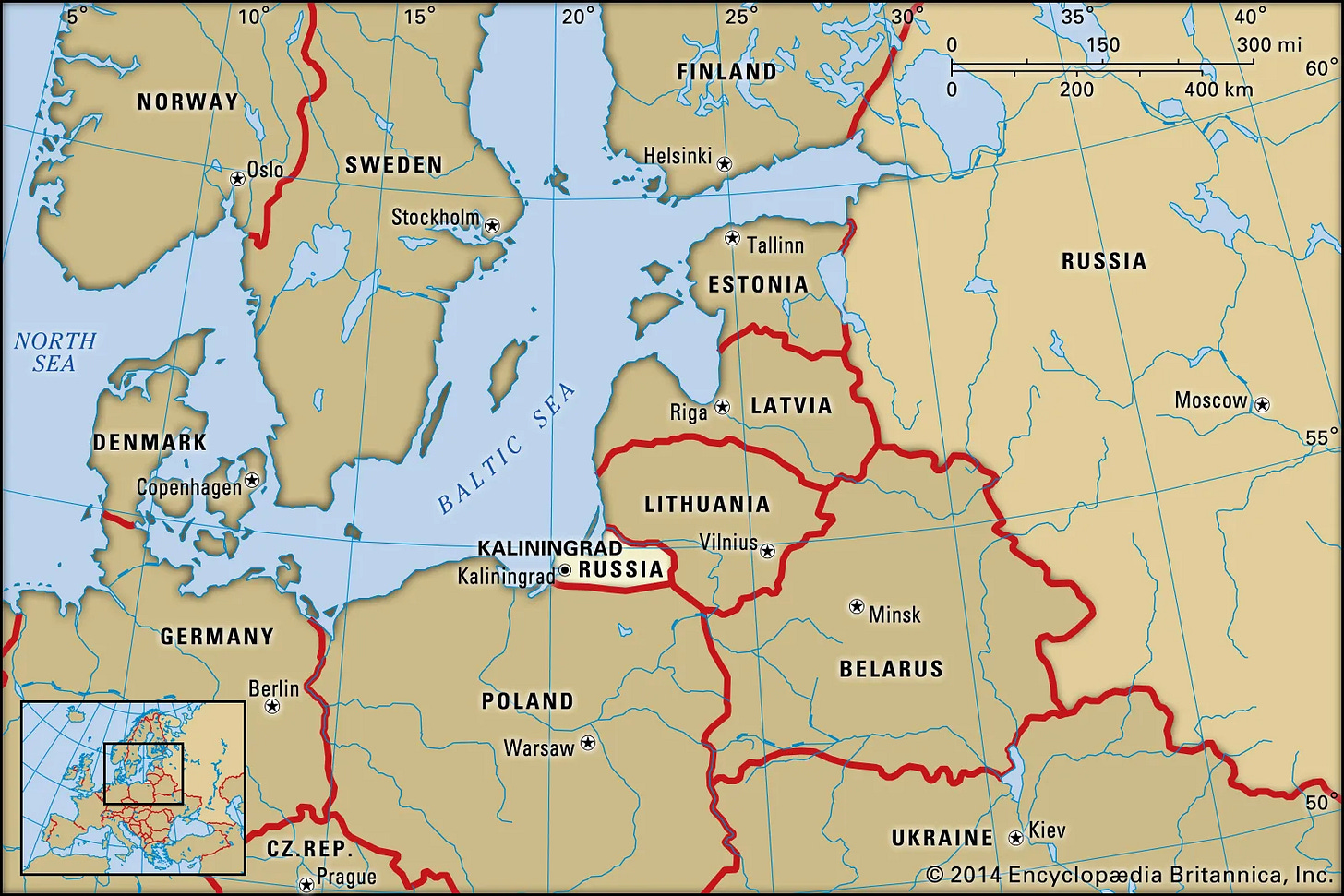Weekend Newsletter #2
Russia prods NATO, Israel tests its allies, and flying things go boom
Happy Sunday, and welcome to the second newsletter! Wrapped up a semester studying foreign affairs at Harvard Extension School, so it’s time to get in a better posting rhythm. I will be sending these out at least once every two weeks (hopefully).
Foreign Affairs Headlines
Unwholesome Content from the Holy Land
Israel is in a case study of what is known in international relations as a “two-level game”. Much of the Israeli government’s response to the October 7th terrorist attack is driven by domestic political concerns. This is becoming evident as members of Israel’s governing coalition are becoming more outspoken in their opposition to official policy. Netanyahu’s Likud party does not hold a majority in Israel’s Knesset (its parliament), so a coalition of Likud and other Israeli parties is required to keep Netanyahu and the current government in power.
Israeli far-right leader Itamar Ben-Gvir’s party is part of this coalition, and advocates full Israeli rule of Palestinian Territories. Netanyahu has a political incentive to appease the hard liners and continue the war, but prior to October 7th, significant opposition to what is the most right-wing government in Israeli history led to nationwide protests. However, the current war cabinet also includes more moderate parties, and the tension is coming out into the open.
Minister of Defense Yoav Gallant called out prime minister Benjamin Netanyahu this week, requesting a clear strategy for completing the operation in Gaza. Netanyahu so far has not articulated a strategy beyond “destroying Hamas”, which is likely an unobtainable goal short of an ethnic cleansing of Gaza. The latter is obviously unacceptable for the international community, and Israel’s ongoing retaliation is causing outcry globally and straining its relationship with allies.
International criminal court prosecutors applied for warrants for the leader of Hamas and Netanyahu, which the Secretary of State has condemned. This puts the United States in an awkward position given that it cheered the ICC’s indictment of Vladimir Putin last year. This may blow over in the long-term, but right now it casts American policy in a hypocritical light.
Russia Pushes the Envelope (and its Border)
The testing of NATO is beginning. The Russian government quietly posted an announcement that it was unilaterally adjusting the borders of its territorial waters in the Gulf of Finland, the small body of water separating Estonia and Finland (see map below).
"Russia plans to appropriate inland sea waters in the eastern part of the Gulf of Finland and near the cities of Baltiysk and Zelenodradsk in Kaliningrad Oblast, according to a decree prepared by the Russian Defense Ministry."
The Finnish government protested after learning of it through media sources, and the document was quickly taken down. Putin will not make a major move all at once. He will slowly and methodically test NATO at different pressure points beneath the threshold he believes will lead to a direct response. First a small move in territorial waters of NATO countries, next maybe demanding access to Kaliningrad.
Another pressure point is the Suwalki Gap: the 40 miles of border between Poland and Lithuania that separates Belarus, effectively now a Russian possession, from Kaliningrad. Taking that could be justified by Putin as ensuring access to Russian territory while isolating the Baltics. Putin is getting more aggressive, and the Biden administration continuing to draw redlines for Ukraine and not Russia is only emboldening him, in my opinion.
The Defense Department has clarified several times that the weapons being supplied to Ukraine cannot be used to strike Russian territory. I discussed in a previous post how the threat of nuclear escalation is driving this policy, but I believe it’s overly cautious and signals weakness to Vladimir Putin that in the end makes escalation more likely.
The Speaker of the House and ranking member of the Senate Foreign Relations Committee, both Republicans, have weighed on the side of removing the restrictions. This is a signal to the Biden Administration that Congress would like to see Ukraine be able to use American weapons as it sees fit. I agree. Russia started this war, and it cannot be allowed to use its territory as a safe haven to launch attacks on Ukraine.
A Note on Flying Machines
In general, it’s not appropriate to speak ill of the dead, but Iranian President Raisi is the exception that proves the rule. Known as the Butcher of Tehran for his ruthless putting down of protests two years ago, Raisi was being groomed to be the next Supreme Leader of Iran and his untimely death from a helicopter crash throws a wrench in Ayatollah Khomenei’s plans.
I understand that there was not a 3-D painting of a tunnel on the mountainside and that roadrunners do not live in Azerbaijan, so certain theories need to be put to rest. It appears neither the Acme Corporation nor Boeing had any involvement in the festivities. That is good for Boeing because it certainly could not afford any more bad P.R.
For Your Perusal
Links to interesting pieces that informed me this week (I tried to check for paywalls, but apologies if I missed some).
It’s Greenland’s Turn to Lead the Arctic Council
UN Halves Its Estimate of Women and Children Killed in Gaza
The Contentious U.S.-China Trade Relationship
'Europe could die': Macron urges stronger defences, economic reforms
Russia blamed for GPS interference affecting flights in Europe
Key member of Israel's war cabinet threatens resignation over war strategy in Gaza
Sudan’s Masalit people are being butchered. Is the world watching?
France, the Other Indo-Pacific Power
South China Sea: India sends warships as ‘subtle reminder’ to Beijing
Haiti’s Gangs: Can a Foreign Mission Break Their Stranglehold?




